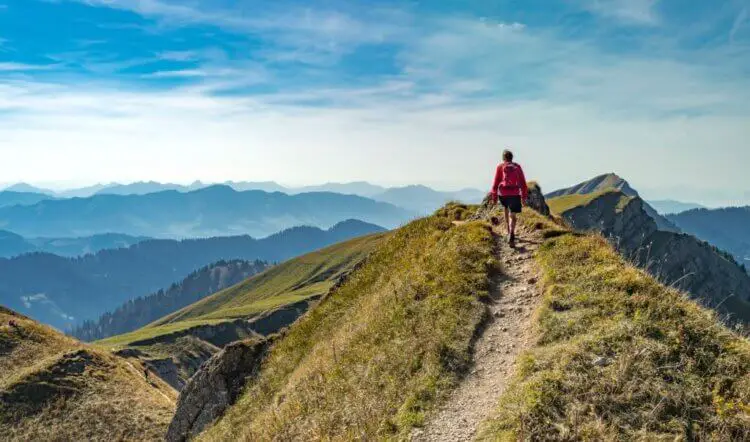What is it about hiking that people find it so tempting? Is it the dose of Vitamin D from exposure to sunlight? Is it the fresh air? Or is it the picturesque view that one finds after walking through rugged terrains and trails. Why should you motivate yourself to partake in this recreational activity that has existed since the 18th century? Let us find out.
Why should you go hiking?
Hiking is a form of exercise
To begin with, hiking is an extremely effective form of exercise. It can help keep your mind and body in top shape. It is a form of cardiovascular exercise, which can also help increase the strength in your leg muscles. As a weight bearing-exercise it activates your bones and muscles thereby has a positive impact on your bone density. As an added bonus, you also get plenty of Vitamin D when you hike on a sunny day.
Improves your sleep quality
According to a study published by the University of Colorado, exposure to natural light during an outdoor activity can boost the melatonin levels, which in turn helps us shift to a natural sleep cycle.
Improves your mood
Physical exercises like hiking can promote the release of endorphins, which is a hormone with numerous physiological functions, triggering positive feelings being one of them. Since hiking is usually done in a natural setting, it has a calming effect in your mind. It can help reduce the attention overload and mental fatigue caused by increased screen times.
Social Activity
Hiking as a social activity helps you detach from a busy schedule and bond with like-minded individuals. You can make real social connections and learn to relate with people. If you are an introvert, hiking may be your best chance to meet new people and learn better socializing skills. According to a study published by the National Institute of Health, social bonding has a positive influence on health and overall well-being.
How to get started?
Plan
Planning for a hiking trip is easier than you know, check online resources to know everything you can about your hiking destination. Learn about the best places to go hiking. Learn about the characteristics of the trail, time, distance, weather forecast on the day of your hike. Collect maps and brochures of the trail.
Pack
Pack light and pack only the necessities while you go on a hike. Here is a small list of hiking gear and essentials to get you started:
- Navigation tools
- Water
- Food
- Rain protection (depending on the weather)
- First aid kit
- Utility tools (like a Swiss knife, flashlight, etc.)
- SPF
- Trash bag
- Bug Spray
- Toiletries
Wear
Although jeans are fine for a short hike, they are not recommended for longer hikes as they tend to be uncomfortable. Wear something breathable to keep you cool or warm, depending on the climate. If you are planning to go on a hike in the summer, wear lightweight clothes but avoid shorts to protect yourself against skin rashes and bug bites. If you are planning to go on a hike in the winter, wear layers to keep yourself warm. Choose the right pair of shoes; your ideal footwear should provide perfect traction in all terrains, should be breathable and ergonomic.
Hike
Start early so that you don’t have to rush back before dark, choose a well-marked trail so that you spend less time navigating and spend more time enjoying the hike, avoid slippery paths before you get comfortable with the trails. Hike at your own pace. Hike with friends or family to get the most out of your hiking trip. Stay hydrated and have light food at regular intervals to avoid feeling heavy after eating. Most importantly- Leave No Trace– dispose of the waste properly, leave what you find, and be considerate of the wildlife and fellow hikers.



